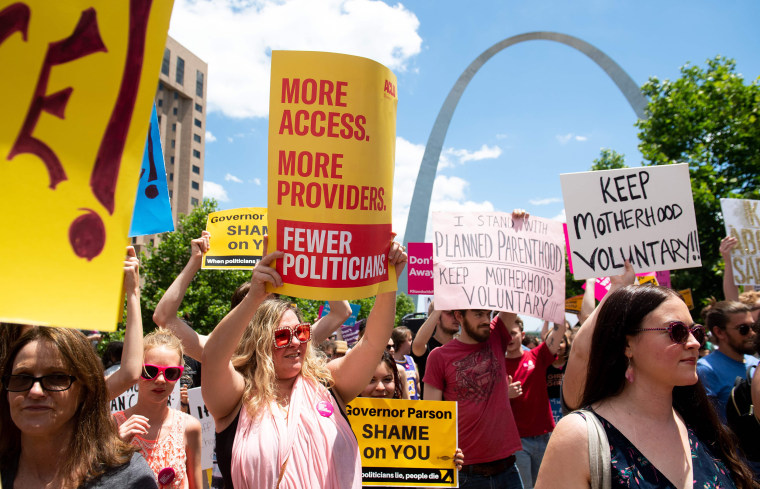More than 170 CEOs have signed a letter opposing laws and regulations that restrict women’s reproductive healthcare, including abortion.
The letter appears today as a full-page ad in The New York Times under the heading “Don’t Ban Equality,” and comes less than a month after Alabama Gov. Kay Ivey signed the most restrictive abortion legislation in the U.S., banning doctors from performing abortion at any stage of pregnancy, punishable by 99 years in prison. The law includes no exceptions for cases of rape or incest.
Several other states — including Georgia, Arkansas, Indiana and Missouri — have adopted similar laws this year.
Twitter and Square Chief Executive Officer Jack Dorsey, along with fashion designer Rebecca Minkoff, Diane Von Furstenburg, and CEOs from companies including Yelp, H&M, The Body Shop and Glossier, say they signed the letter to send a clear message that restricting access to reproductive care, including abortion, is “against our values, and is bad for business.”
Such legislation, the executives write, inhibits “our ability to build diverse and inclusive workforce pipelines, recruit top talent across the states, and protect the well-being of all the people who keep our businesses thriving day in and day out.”
Andrea Blieden, U.S. general manager of The Body Shop, told CNBC that “access to reproductive health care is recognized as a human right” and said the letter emphasizes the company’s outlook that it is essential for U.S. law to “respect, protect and fulfill the human rights of women.”
“We believe that a woman’s ability to access reproductive health care is critical to her autonomy, economic success, physical and mental health and general empowerment in the workplace,” said Blieden. “As a brand that stands for equality and women’s empowerment, we believe it’s important that we take a stand and join this cause.”
Seventh Generation CEO Joey Bergstein said that now more than ever, it’s essential for CEOs and executives to speak up.
“We’re deep believers that companies and businesses can and must be a force for good,” he said. “You’ll notice in our mission that we don’t talk at all about selling eco-friendly home and personal care products. We talk about the change we’re trying to create in the world, and that’s inclusive of social change, with this being a pivotal issue.”
A 2017 survey conducted by public relations firm Weber and Shandwick found that 47 percent of millennials believe CEOs have a responsibility to speak up about issues that are important to society. Additionally, 28 percent of Gen Xers and Boomers agreed.
In May, seven female CEOs from companies including Sustain Natural, Thinx and LOOM ran a full-page ad in The New York Times affirming abortion as healthcare and a human right, and urging other business leaders to do the same.
Entertainment companies including Disney, Netflix and WarnerMedia announced last month that they would consider ceasing production in Georgia if the state’s restrictive abortion law takes effect.
“I think many people who work for us will not want to work there, and we will have to heed their wishes in that regard,” Disney CEO Bob Iger told Reuters. “Right now we are watching it very carefully.”
The letter that appears today in The Times was spearheaded by the American Civil Liberties Union, Planned Parenthood Federation of America, NARAL Pro-Choice America and the Center for Reproductive Rights. These organizations have also partnered to launch DontBanEquality.com, a site where people can learn more about the group’s mission and where CEOs can add their names to the letter.
“It’s critical that business leaders stand up and use our voice on incredibly important issues,” says Bergstein. “And I think reproductive rights and women’s equality is one of the most important issues of our time.”
